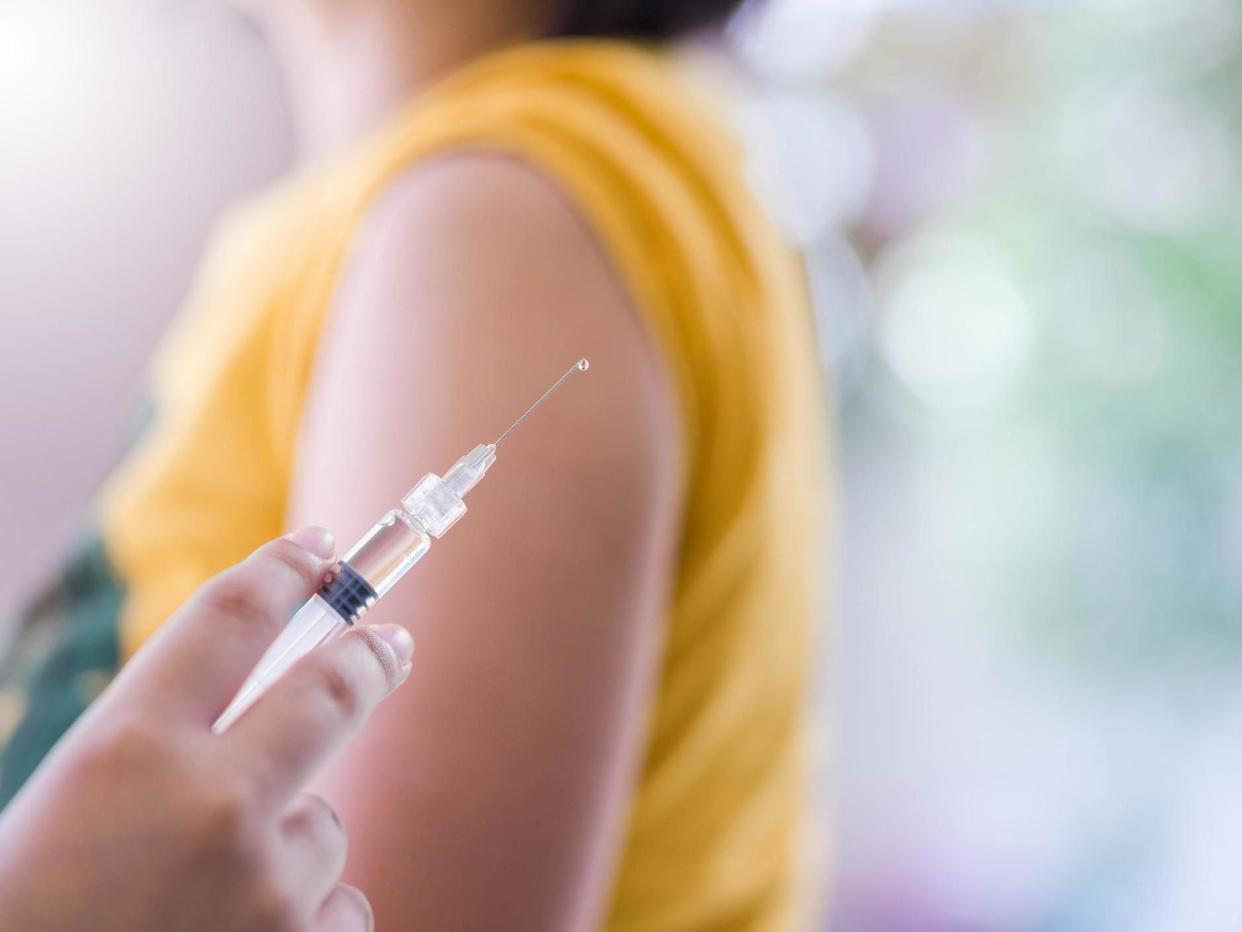NHS flu jab progamme extended: When can over 50s get a free vaccine?

People aged 50 to 64 in England will be able to get a free flu jab from the start of December as the government rolls out the free winter vaccination programme wider than ever before.
Last year, around 15 million people received the jab, which protects against seasonal flu. However, in a bid to battle the dual problems of Covid-19 and flu, officials hope this will rise to 30 million this winter.
On 20 November, Health Secretary Matt Hancock said it was a winter "like no other". "We have to worry about the twin threats of flu and Covid-19," he said.
So who is eligible for a free vaccine and how can they get one?
What is the flu vaccine?
Flu circulates every winter and generally peaks in December and January. This means that many people often get ill around the same time.
To prevent overwhelming demand on the NHS, people most at risk of problems if they catch flu are offered a vaccination against the virus to help protect them.
Who normally gets the flu vaccine?
Typically, the flu vaccine is routinely given on the NHS to:
adults 65 and over
people with certain medical conditions (including children in at-risk groups from six months of age)
pregnant women
children aged 2 and 3
children in primary school
frontline health or social care workers
Who is eligible under the new extension?
This year, around 30 million people are to be offered the free flu vaccine with many becoming eligible for the very first time.
The new extensions will include all over-50s, as well anyone on the shielding list and the people they live with.
Those aged 50-64 can get the jab from 1 December onwards, says the health secretary.
We're expanding eligibility for the flu vaccination programme.
More info on who can now get it:
➡️ https://t.co/K4J5p4bRW8
This expansion is part of our plan to protect the NHS this winter. You can help by getting a flu vaccination if eligible.#VaccinesWork | #ValueofVaccines— Department of Health and Social Care (@DHSCgovuk) July 24, 2020
Also for the first time, children in their first year of secondary school will all be offered the vaccine.
England's deputy chief medical officer, Professor Jonathan Van-Tam, has urged all those eligible to get the jab.
"I urge all those who are eligible for the flu vaccine, including the new group of 50 to 64-year-olds, to book their appointments as soon as they can."
Why is it being extended this year?
The government has decided to increase the number of people eligible for the vaccine to prepare for a winter that will see the annual flu season coincide with a surge in coronavirus.
Health Secretary Matt Hancock said: "This winter is like no other, and we have to worry about the twin threats of flu and Covid-19.
"Covid means getting a flu jab is more important than ever this year. So we are delivering the largest ever flu vaccination programme."
How does the flu vaccine work?
According to the NHS, the flu vaccine stimulates your body's immune system to make antibodies to attack the flu virus.
Antibodies are proteins that recognise and fight off germs, such as viruses, that have invaded your blood.
If you're exposed to the flu virus after you have had the flu vaccine, your immune system will recognise the virus and immediately produce antibodies to fight it.
It may take 10 to 14 days for your immunity to build up fully after you have had the flu vaccine.
You will also need to have a flu vaccination every year as the antibodies that protect you from flu decline over time, and flu strains can also change from year to year.
Where can you get the flu vaccine?
You can have your NHS flu vaccine at your GP surgery, a local pharmacy offering the service or your midwifery service, if they offer it for pregnant women.
Some community pharmacies now offer flu vaccination to adults (but not children) at risk of flu, including pregnant women, people aged 65 and over, people with long-term health conditions and carers.
If you have your flu vaccine at a pharmacy, you do not have to inform a GP. It is down to the pharmacist to do that, the NHS says.
How effective is it?
Flu vaccine is the best protection we have against the unpredictable.
The NHS states that studies have shown that the flu vaccine will help prevent you getting the flu. However, it will not stop all flu viruses and the level of protection may vary, so it is not a 100 per cent guarantee that you will be flu-free.
If you do get flu after vaccination, it is likely to be milder and shorter-lived than it would otherwise have been.
Read More


